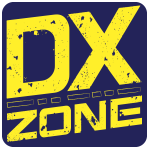The 2019 CQ World-Wide WPX Contest
http://www.cqwpx.com/rules.htm
SSB: March 30-31, 2019 CW: May 25-26, 2019
[SSB is always the last full weekend of March, CW is always the last full weekend of May]
Starts: 0000 UTC Saturday Ends: 2359 UTC Sunday
Objective
For amateurs world wide to contact as many amateurs and prefixes as possible during the contest period.
Period of Operation
48 hours. Single Operator stations may operate 36 of the 48 hours – off times must be a minimum of 60 minutes during which no QSO is logged. Multi-operator stations may operate the full 48 hours.
Bands
Only the 1.8, 3.5, 7, 14, 21, and 28 MHz bands may be used.
Observance of established band plans is strongly encouraged.
EXCHANGE:
RS(T) report plus a progressive contact serial number starting with 001 for the first contact. Note: Multi-Two and Multi-Unlimited entrants use separate serial number sequences on each band.
SCORING:
A. Score: The final score is the result of the total QSO points multiplied by the number of different prefixes worked.
B. QSO Points: A station may be worked once on each band for QSO point credit:
- Contacts between stations on different continents are worth three (3) points on 28, 21, and 14 MHz and six (6) points on 7, 3.5, and 1.8 MHz.
- Contacts between stations on the same continent, but different countries, are worth one (1) point on 28, 21, and 14 MHz and two (2) points on 7, 3.5, and 1.8 MHz. Exception: For North American stations only—contacts between stations within the North American boundaries (both stations must be located in North America) are worth two (2) points on 28, 21, and 14 MHz and four (4) points on 7, 3.5, and 1.8 MHz.
- Contacts between stations in the same country are worth 1 point regardless of band.
C. Prefix Multipliers: The prefix multiplier is the number of valid prefixes worked.
Each PREFIX is counted only once regardless of the band or number of times the same prefix is worked.
- A PREFIX is the letter/numeral combination which forms the first part of the amateur call. Examples: N8, W8, WD8, HG1, HG19, KC2, OE2, OE25, LY1000, etc. Any difference in the numbering, lettering, or order of same shall count as a separate prefix. A station operating from a DXCC entity different from that indicated by its call sign is required to sign portable. The portable prefix must be an authorized prefix of the country/call area of operation. In cases of portable operation, the portable designator will then become the prefix. Example: N8BJQ operating from Wake Island would sign N8BJQ/KH9 or N8BJQ/NH9. KH6XXX operating from Ohio must use an authorized prefix for the U.S. 8th district (/W8, /AD8, etc.). Portable designators without numbers will be assigned a zero (Ø) after the second letter of the portable designator to form the prefix. Example: PA/N8BJQ would become PAØ. All calls without numbers will be assigned a zero (Ø) after the first two letters to form the prefix. Example: XEFTJW would count as XEØ. Maritime mobile, mobile, /A, /E, /J, /P, or other license class identifiers do not count as prefixes.
- Special event, commemorative, and other unique prefix stations are encouraged to participate. Prefixes must be assigned by the licensing authority of the country of operation.
Official CQ WW WPX Contest Rules
Be sure to read the official rules at CQ WW WPX Contest page
Contest Software
A curation of contest programs taken from our Contest Software links page






